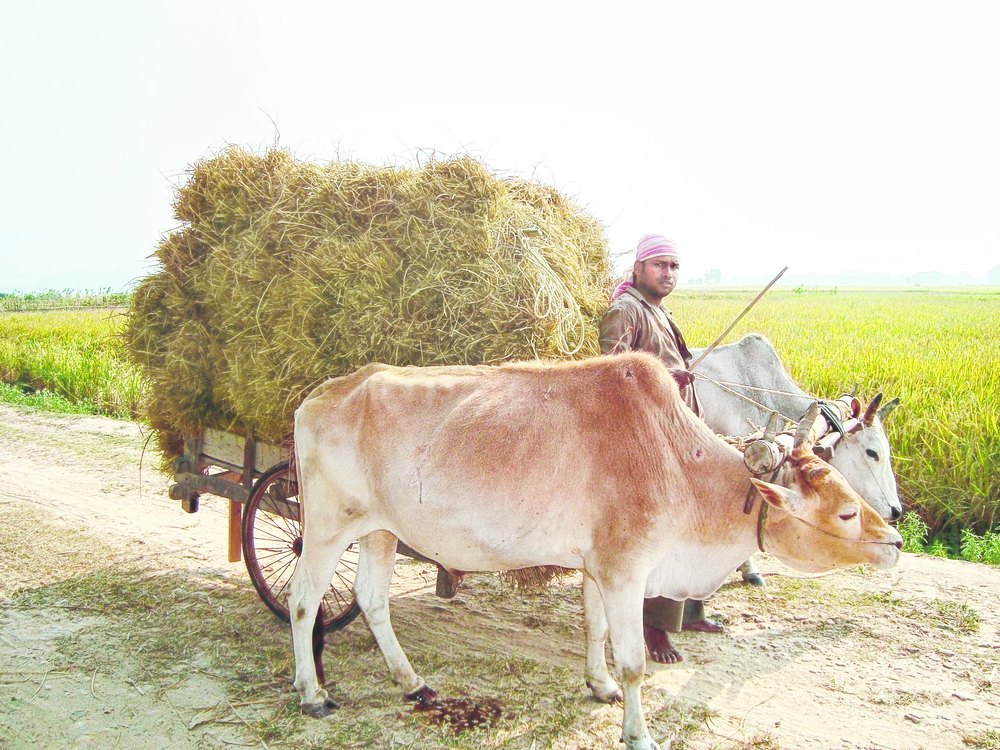
A farmer carries grass on a bullock cart. Picture by Kishore Talukdar
Borjhar, Dec. 21: The dwindling count of sal trees in south Kamrup might just push the bullock cart, a traditional carrier of harvested paddy in Assam, to extinction.
The wheels of the carts are primarily made from sal trees and to a lesser extent from sisu trees.
As of today, the number of such carts in south Kamrup has come down to below 100, quite a contrast from the eighties when every farmer in the district owned one.
Basanta Das, a bullock cart wheel-maker, said, 'To make two wooden wheels about seven cubic meters of timber is required, which costs Rs 21,000. Only a mature tree (four-feet girth) can be used in making the wheels.'
There are two types of wheels. While those measuring 4.5ft in diameter form an integral component of the bigger carts, the small-sized bullock carts require wheels measuring a diameter of three feet. A cart can carry weight up to 12 quintals.
Sal ( shorea robusta) and sisu ( dalbergia sissoo) trees are categorised as schedule A-2 species. While rampant deforestation is pushing sal trees to the verge of extinction, sisu has a smattering presence in the forests of Assam. The threat of losing what was once an indispensable means of carrying home the harvested paddy is writ large on the faces of farmers in the villages of south Kamrup.
'The bullock cart is our prized possession as it can plough through all-weather roads. No other form of transport can match the cart in terms of efficiency and durability. It is difficult for us to think life without it,' said Rajdeep Choudhury, a farmer from Urput near Mirza.
'The carts are taken to the paddy fields to load the harvested stacks of paddy. After stocking the paddy at a camp nearby for a few days, farmers transport them to their house in phases according to their convenience. Now, if we have to hire fuel-driven vehicles which cannot be taken to the site of loading because of the soft ground, we also have to engage labourers, which further affects our profit margins,' he said.
Farmers engage additional workers to carry stacks of paddy from the field to the road beside which the motor vehicle is parked. 'Without the cart we now have to bear both carrying and loading charges,' Das said.
In the absence of timber, cart makers are resorting to rubber, which, according to farmers, is a poor substitute as it has its limitations. 'A rubber wheel can neither travel on bumpy, pot-holed roads nor carry weight beyond a certain point. On a bumpy road, the rubber wheels face the threat of wear and tear, which reduces the longevity of the carts,' Ramesh Das, a farmer from Uparhali, said.










